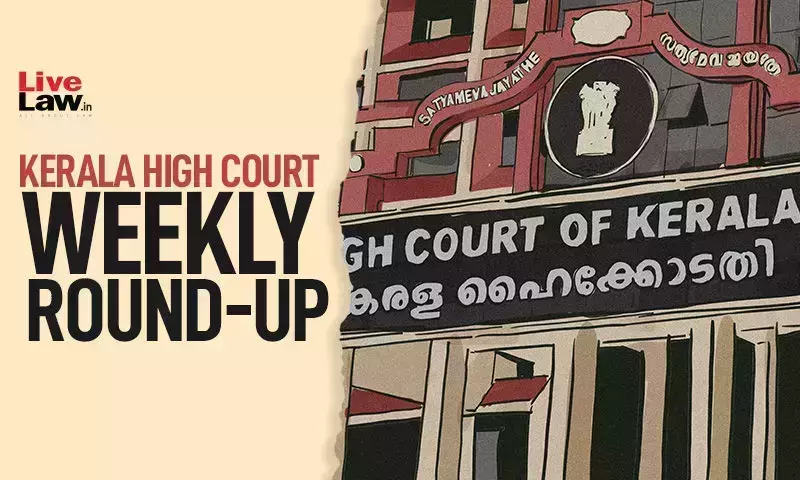Kerala High Court Weekly Round-Up: November 6 - November 12, 2023
Navya Benny
13 Nov 2023 9:05 AM IST

Next Story
13 Nov 2023 9:05 AM IST
Nominal Index [Citations: 2023 LiveLaw (Ker) 629-648] Roli Pathak v Union of India 2023 LiveLaw (Ker) 629Shibu J v State of Kerala 2023 LiveLaw (Ker) 630Mathrubhumi Printing & Publishing Co. Ltd v State of Kerala 2023 LiveLaw (Ker) 631XXX & Anr. v. Union of India & Ors. 2023 LiveLaw (Ker) 632Shoma G. Madan & Anr. v. State of Kerala & Anr. 2023 LiveLaw (Ker) 633Deepak K. v...
